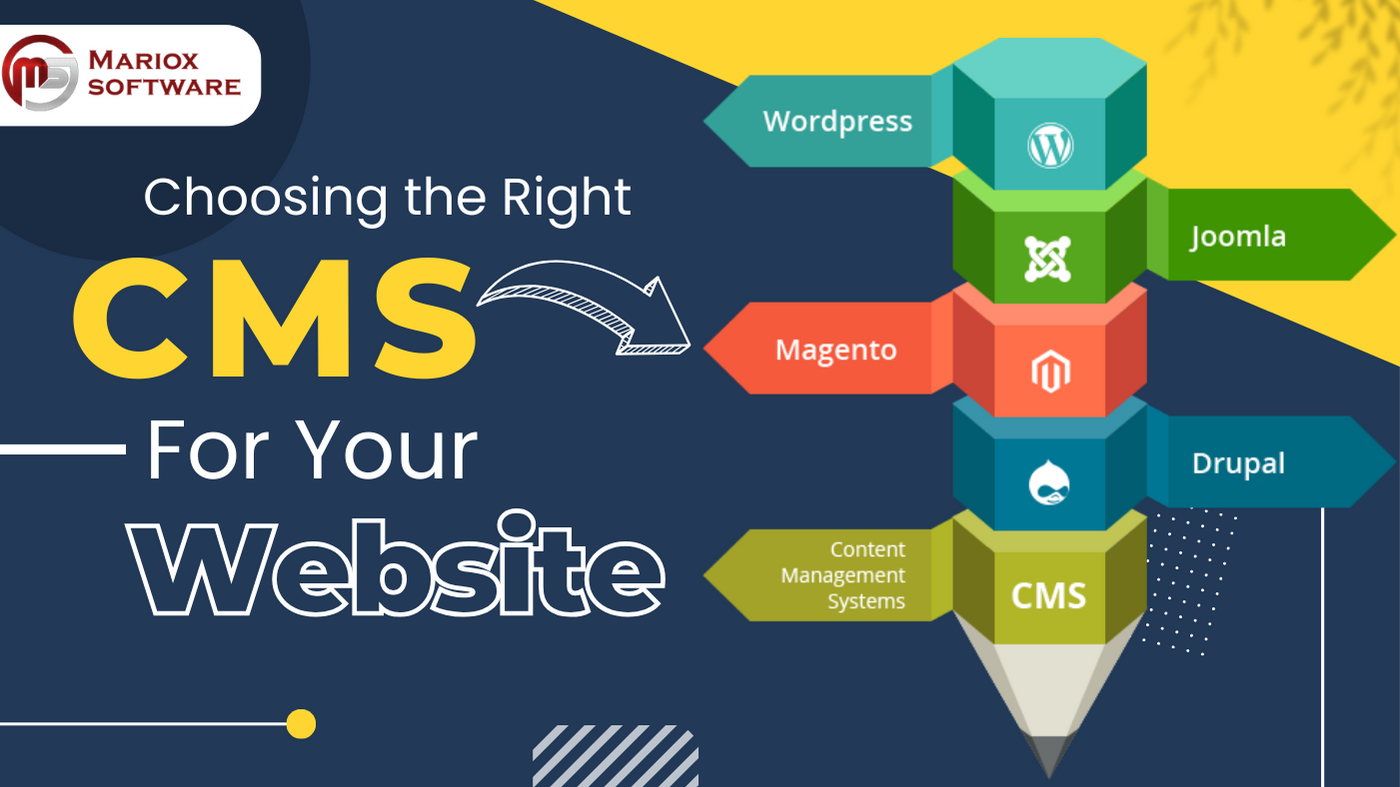Did you know there are over 1.5 billion websites on the Internet today? With numerous websites, choosing the right CMS (content management system) for your site can be overwhelming. But fear not! In this blog, we will guide you through selecting the perfect CMS for small businesses and MNCs. Let us know which is one of the best CMS for your website!
Tips to Choose Your Content Management System
Firstly, consider your goals and what is essential to your business. Once you’re clear on your website’s goals, you will understand better which CMS will work best for you. Don’t let selecting a CMS become daunting – the core functions are similar, so here is some advice about the differences, like CMS security features, CMS for small businesses, etc., that will help you make the right decision.
Easy to Use
If you want to manage and handle your own website, then without a doubt, you want your content management system to be easy to use, most importantly if you don’t have advanced technical skills and knowledge. So, look for a system that allows simple content creation and customization by making it easy and quick to update and upload text, insert links, images and videos and add or remove website pages. You will be able to update your new site within minutes.
If you have several websites, choose a CMS for small businesses and MNCs that allows you to manage them all from one place, saving you precious time and money. This is great if you need to run an intranet or portals.
Customizable
A one-size-fits-all solution may be acceptable for start-up businesses with basic website content, but you’ll likely seek the freedom to customize certain features. The vendor should be able to custom-develop a specific feature at your request.
SEO-friendly
There is no need to have a CMS that has negative effects on your SEO (search engine optimization). The system should build and create clear URLs and allow you to write new titles and page descriptions. Also, look for a system that will enable you to manage your site’s SEO with in-built SEO tools.
Within Your Budget
Do you need enterprise CMS solutions? You first need to evaluate your budget, available technical expertise, and resources to make a realistic and sustainable choice for a solution. There are several CMS platforms that are free and charge monthly. But you need to select the budget according to your business needs.
Secure
Find a CMS that prioritizes security through features such as secure authentication, regular updates, and protection against common vulnerabilities. Work only with platforms that follow best practices for data encryption and consumer access controls.
Integrated with Web Analytics
CMS’s ability to track key metrics and analytics, such as website visits and conversions, is really important, and you want to be sure you integrate with tools like Google Analytics.
Technically Supported
Just imagine that you have some technical issues in the website development process. What will you do? Oversiouly, you will search for CMS technical support, which is available 24/7.
Select the Best CMS for Websites
The market offers more than 1,000-2,000 content management systems, and this number will not stop soon. With each CMS catering to specific markets and offering the latest and trending features, choosing the right one must reflect the site’s intent and scope.
Now, let’s dig deeper into the best Content Management System option for your website –
WordPress – Do you know WordPress is known as the world’s most popular CMS and powers over 37% of all websites on the Internet? Given below are some key reasons why WordPress popularity is increasing day by day –
- WordPress is free and open source.
- You can find thousands of themes to control your website’s appearance.
- Also, you can access 55,000+ free plugins to extend your website’s features.
Drupal – Drupal is also an open-source CMS that excels when it comes to managing and handling sites with large amounts of content. It has a built-in consumer access system gives you control over what registered users can do inside the Content Management System.
Joomla – Joomla comes with large marketplaces for extensions and templates, which helps you create a website that matches your needs.
Magento – Magento is an open-source CMS for e-commerce websites. It’s flexible with robust security, but it’s not very accessible for non-technical consumers. You’ll need some technical skills and knowledge to set it up.
HubSpot CMS – HubSpot CMS is excellent for businesses and marketers looking to connect with users. Other features include:
- Search engine optimization recommendations to rank in Google search results
- Built-in testing to optimize your content
- Contact attribution to analyze where your sales and leads come from
- 24/7 security monitoring and support if you need any help
Conclusion
Choosing the right Content Management System is an essential decision that can impact your site’s scalability, performance, and ease of management. By understanding the function of a CMS and evaluating your specific requirements, you can make an informed choice that aligns with your business goals.
Ultimately, a CMS should empower you to efficiently manage, create, and update content, allowing you to focus on delivering a compelling consumer experience. In short, meaningful content is the goal, and a CMS should be a helpful hand that guides you through the process. Hope the above CMS selection guide will help you find an answer to your question.

